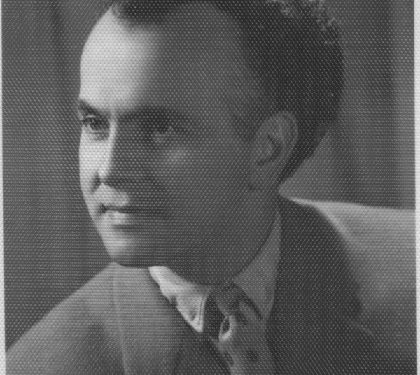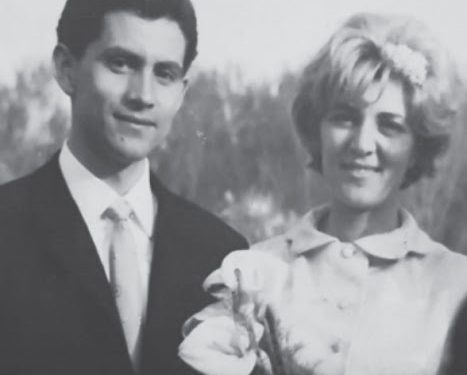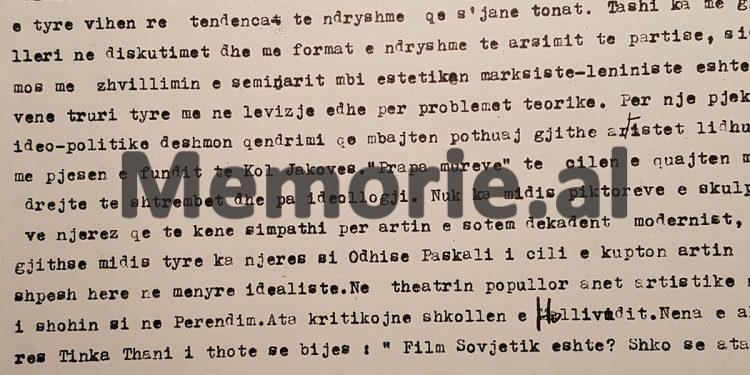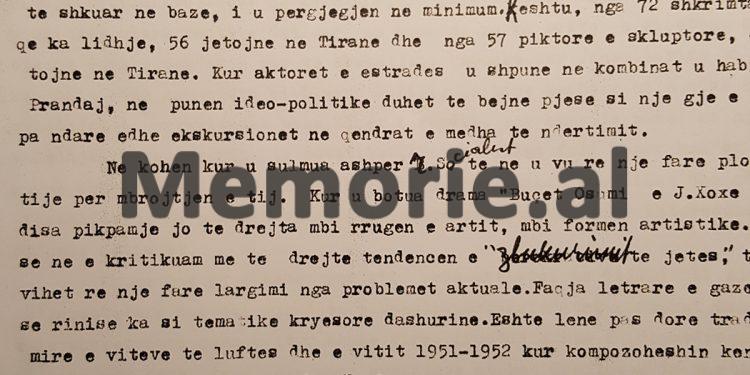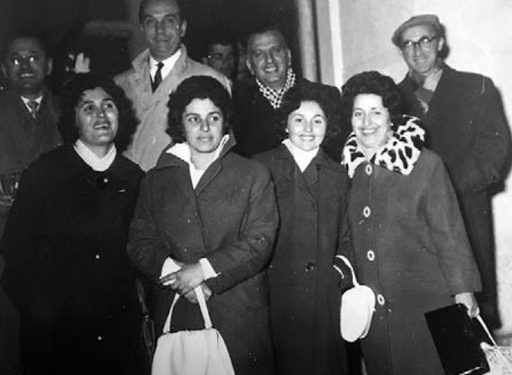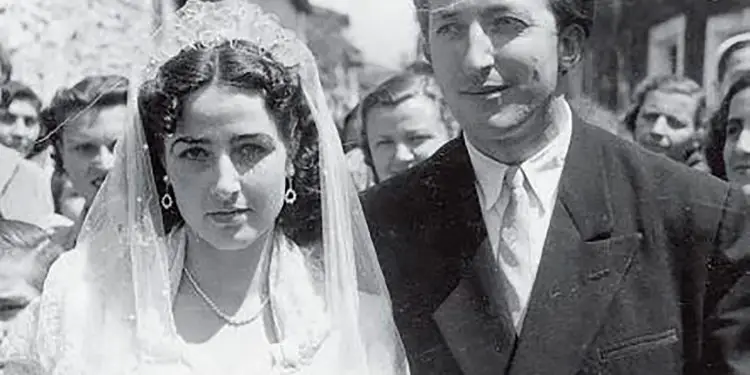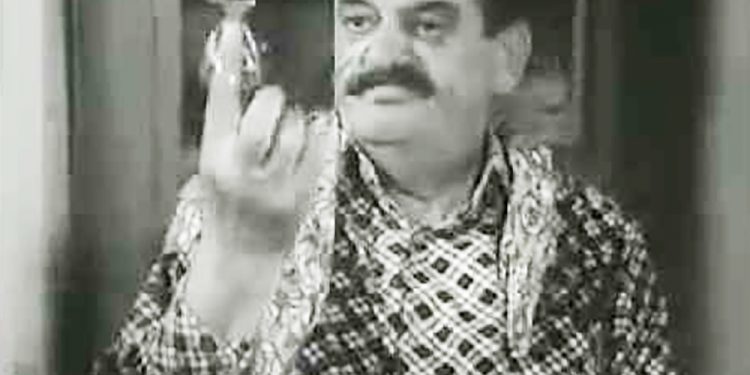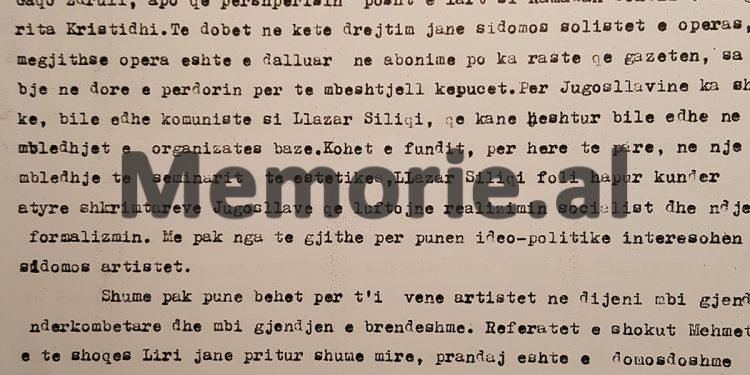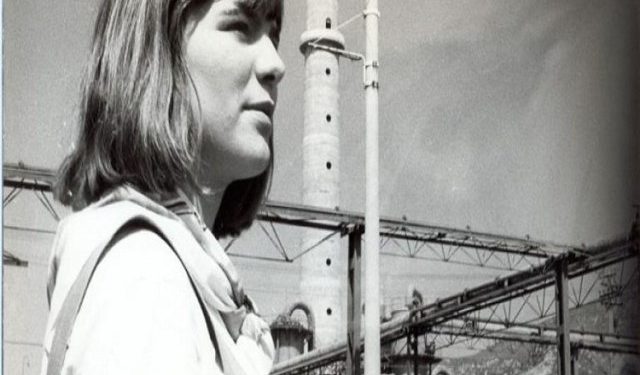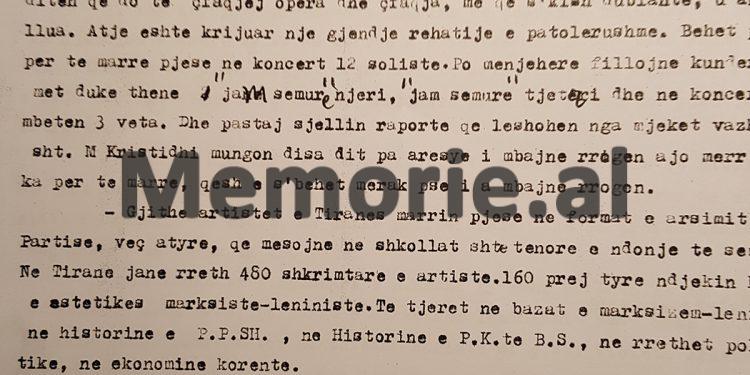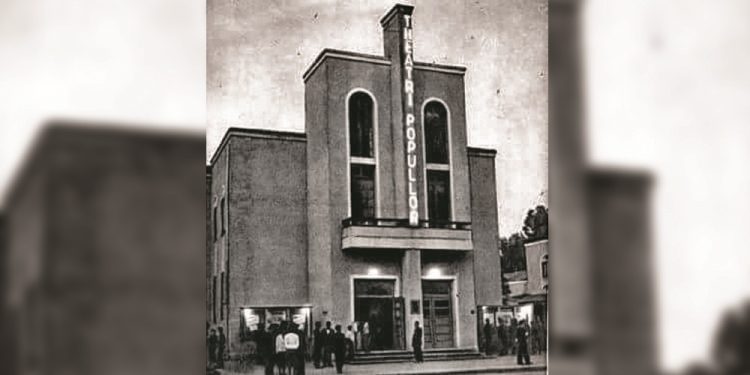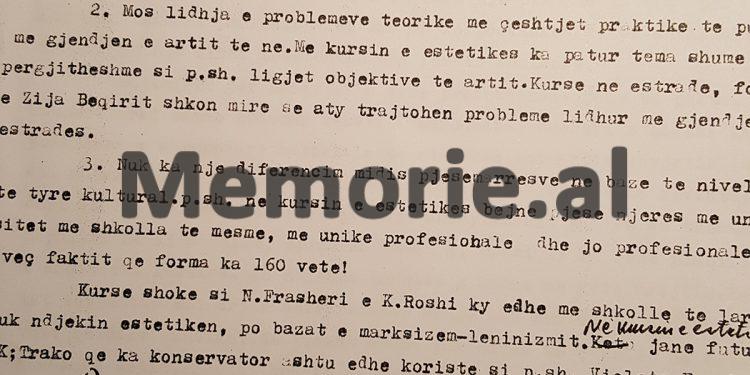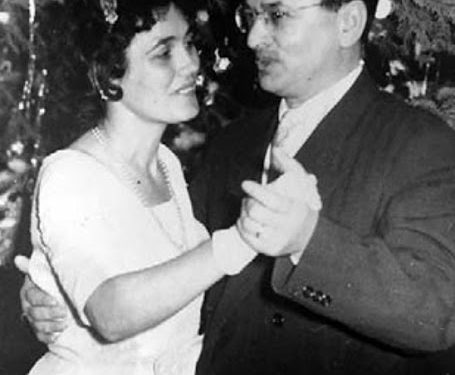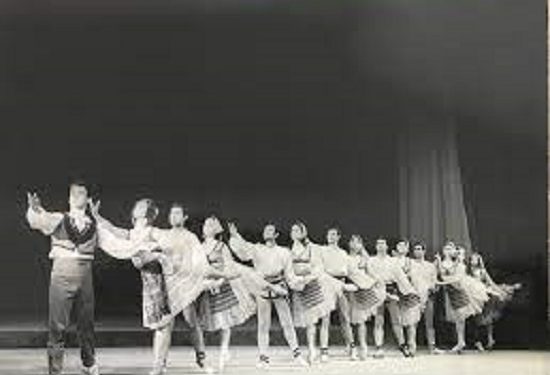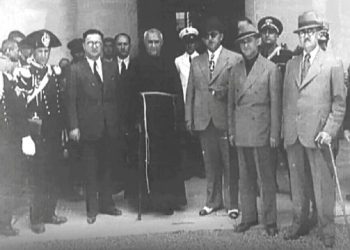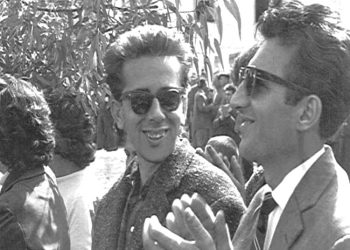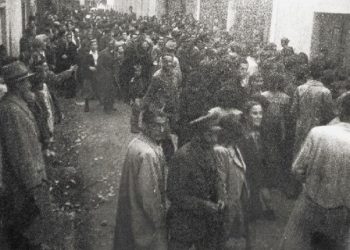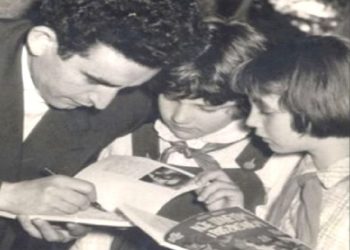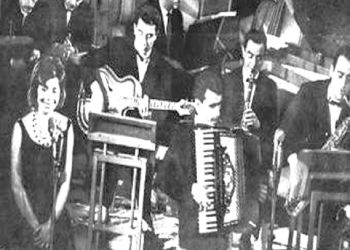Dashnor Kaloçi
The first part
Memorie.al publishes an archival document issued by the Central State Archive in Tirana (fund of the former Central Committee of the ALP), which belongs to 1957, where there is an information report drafted by a working group of instructors of the apparatus of the Central Committee of the ALP (covering propaganda, art and culture), who have participated in the meetings of the basic organization of the Party and that of the Professional Unions of the League of Writers and Artists of Albania, as well as in cultural institutions of the main artistic institutions of Tirana, such as: People’s Theater, State Variety, Opera and Ballet Theater, State Ensemble of Folk Songs and Dances, Kinostudio “Shqipëria e Re”, etc. The full report-information which was sent to Enver Hoxha, where in addition to the work in the professional aspect of the main cultural and artistic institutions of Tirana, as well as the troubles and problems that worried them, the instructors of the Central Committee of the ALP, have given in detail many of the conversations made by the most prominent writers and artists of that time, which contradicted the socialist realism and the political line that was being followed at that time by the senior leadership of the ALP, such as: Naim Frashëri, Kol Jakova , Kadri Rroshi, Mihallaq Luarasi, Odhise Paskali, Mihal Stefa, Simon Rrota, Mentor Xhemali, Kostandin Trako, Luiza Papa, Ramadan Sokoli, Tinka Kurti, Margarita Kristidhi, Hamide Stringa, Esma Agolli, Kristaq Dhamo, Sulejman Pitarka, Qenan Popi, Viktor Gjoka, Enver Dauti, Lluk Kaçaj, Rrok Dabërdaku, Injac Dema, Irena Gjergo, Gaqo Zdruli, Mihal Stefa, Zija Beqiri, Gjenovefa Bimbli, Andromaqi Hadëri, Behije Çela, Milena Asllani, Jorgji Bitri, Vio ëri, etc.
The liberal policy pursued by Nikita Khrushchev and his supporters in the Kremlin and the Soviet Union after Stalin’s death in the second half of the 1950s, in a way resonated to some extent in Enver Hoxha’s communist Albania, which gave its effects also in the Tirana Conference in 1956, where many communists and cadres even from the high ranks of power of that time, raised and harshly criticized some of the privileges of the main leadership of the ALP and the great gap that they had created with the common people, both by way of life and by economic condition.
In this context of the events of that time (both in the Soviet Union and in other communist countries of Eastern Europe), the condemnation of the cult of Stalin, the opening to the West, the spirit of liberalism they were following and the change of political course , there was a great sensitivity in the Albanian society and mainly in the writers and artists, who by the very nature of their work (visits and contacts with the outside world), were closer to the spirit that Khrushchev’s policy was trying to convey to the countries its other satellites.
Among other things, this is made known by this archival document belonging to 1957, which is detached from a voluminous file and addressed directly to Enver Hoxha, where a working group of instructors of the Central Committee of the ALP- covering propaganda, art and culture, have participated in the meetings of the basic organization of the Party and that of the Professional Unions of the League of Writers and Artists of Albania, as well as cultural and artistic institutions of Tirana, such as: People’s Theater, Opera Theater and Ballet, the State Ensemble of Folk Songs and Dances, Kinostudion “Shqipëria e Re”, Estrada e Shtetit, etc., have compiled the report-information in question for their superiors.
The document in question, which is entitled “On the ideo-political education of writers and artists in Tirana”, at first glance seems to be related only to the forms of education of writers and artists, or the problems and problems they had in it indeed all the employees of the cultural and artistic institutions of Tirana, but there are clear denunciations for a large number of writers and artists, not only from Tirana, but also from Shkodra, etc.
For example, for: Kol Jakova, Kadri Rroshi, Odhise Paskali, Mihal Stefa, Simon Rrota, Mentor Xhemali, Luiza Papa, Ramadan Sokoli, Margarita Kristidhi, Hamide Stringa, Viktor Gjoka, Lluk Kaçaj, Rrok Dabërdaku, Irena Gjergon Gaqo Zdrulin, Mihal Stefa, Gjenovefa Bimblin, Behije Çela, Milena Asllani, Jorgji Bitrin, Violeta Frashëri etc.
We emphasized that these writers and artists are pure denunciations and espionage, because in addition to the problems of their professional work, in the report-information in question, there is a lot of information about their private and family life, even about very intimate things. But the main thing is that information has been gathered against them both about the way of life and about what they were talking about, which was contrary to the spirit and political line that was being followed at that time by the communist leadership of official Tirana.
And the very fact that all of them were sent to Enver Hoxha, speaks clearly about the great sensitivity that the communist regime had towards writers and artists as well as the dictatorship that was exercised over them. Like most of the documents published in this book, this document is published in full and without any changes.
Report-information of the group of instructors of the apparatus of the Central Committee of the ALP, sent to Enver Hoxha
I N F O R M A T I O N
ON THE IDEO-POLITICAL EDUCATION OF WRITERS AND ARTISTS OF TIRANA
There is no doubt that the ideo-political work that takes place with artists has greatly influenced the transformation of their consciousness. Many writers and artists who held an indifferent attitude towards the popular power, are associated with the party and day by day become more active. Here in the first place have influenced the great transformations that have taken place in our society, the progress of industry and agriculture as well as the good conditions that have been created for the development of arts and culture.
The fact that art develops in the path of socialist realism and that this method is followed by all, shows more clearly that artists are with the Party, despite the fact that from time to time in their creative activity and in their thoughts there are different tendencies that s ‘are ours.
Now there is more liveliness in the discussions and in the various forms of party education, especially in the development of the seminar on Marxist-Leninist aesthetics their brains have been set in motion even for theoretical problems. An ideo-political maturity is evidenced by the attitude held by almost all artists regarding the last part of Kole Jakova “Behind the walls”, which they rightly called, crooked and without ideology.
There are no people among painters and sculptors who have sympathy for today’s decadent modernist art; although among them there are people like Odhise Paskali, who often understands art in an idealistic way. In the People’s Theater the artistic sides are not seen as in the West. They criticize the Hollywood school. Actress Tinka Thani’s mother says to her daughter: “Is it a Soviet movie? ”Go, they are good movies.”
Although among the artists there are still those who believe in God and put him in the church, such as the actor Mihal Stefa, the cameraman Hamdi Ferhati, Guraziu and Guralumi, but it is a fact that now “Kavaleria rustikana” is being staged, the director noticed that the mass of opera artists, did not know how to make the cross properly. Even for political problems, a greater interest is now shown and discussed a lot by artists like Gjon Karma who were not preoccupied before.
It is difficult to concretely show what wrong views artists have, while in our country, written criticism is far behind the development of art. Nevertheless, from the creative discussions, from the seminars on aesthetics, from the literary-artistic works themselves, some conclusions can be drawn.
Although the need for deep knowledge of life by artists has been strongly raised, although this problem was discussed in their first Congress, although Comrade Khrushchev’s article on this issue was recently worked on with them, still, a good portion of our writers and artists do not know life. In words they are for it, yes, when it comes concretely, they are reluctant.
And for this reason out of 16 literary works that won first prizes in the competition, 10 were themed on the past. Kole Jakova’s drama, “Behind the Walls”, showed his ignorance of life. The narrow topic of Estrada only about small social issues proves the same thing. The Party’s call to go to the base was answered to a minimum.
Thus, out of 72 writers that the League has, 56 live in Tirana and out of 57 painters and sculptors, 41 live in Tirana. When the Estrada actors were taken to Kombinat, they were surprised. Therefore, excursions to the big work centers of the country should be an integral part of the ideo-political work.
At the time when socialist realism was severely attacked, certain laziness was observed in our defense. When the drama “Buçet Osumi” by Jakov Xoxe was published, there were some unfair views on the path of art, on the artistic form. If we have rightly criticized the tendency to “beautify life”, there is now some departure from the current problems.
The literary page of the youth newspaper has love as its main theme. The good tradition of the war years and of 1951-1952 was neglected when composing songs for almost any major construction. Their place has now been taken by love songs and dance music, sentimental songs both from the lyrics and from melodies that nostalgically recall the past, that do not represent the emotional side of our time and that are imitations and copies of Western music.
Likewise, when the “Kremlin Hours” were staged at the People’s Theater, it was said that as soon as it turned out well, this original part, like “Halili and Hajria”, should be removed; in a word there is still a tendency to care insufficiently for national dramaturgy. Pat in the Theater also whispered about “innovation” in the bad sense of the word, about form for the sake of form, although this was not persistent.
In Estrada, Mihallaq Luarasi, who studied theater directing in Hungary, sought external influences, advocated naturalism, gave actors the opportunity to learn Israeli poetry in practical education, at a time when Israel was fighting against Egypt. But in Estrada, more Spanish songs are heard and at first they like to perform Soviet songs.
The Catholic Church of Shkodra addressed Odhise Paskali to make two angels and he accepted, as did the painter Simon Rrota, whose 70th birthday was celebrated and decorated. Whereas Injac Dema, who graduated from the Art High School with a state scholarship, works in the Catholic Church of Shkodra as a painter.
There is still indifference and apoliticism among artists such as, e.g. actors Mihal Stefa and Liza Vorfi, or the communists Hamide Stringa and Mentor Xhemali, there are others who do not seem to be interested in what is happening in the world or in our country, such as: Rrok Dabërdaku, Luiza Papa, Irena Gjergo, Gaqo Zdruli, or whispering down high as Ramadan Sokoli and Margarita Kristidhi.
Weak in this regard are especially the soloists of the Opera, although the Opera is distinguished in subscriptions, but there are cases when the newspaper is in hand, they use it to wrap their shoes. For Yugoslavia, there are friends, even communists like Llazar Siliqi, who have remained silent even in the meetings of the grassroots organization.
Recently, for the first time, at a meeting of the aesthetics seminar, Llazar Siliqi spoke openly against Yugoslav writers who fight socialist realism and pursue formalism. Few people are especially interested in ideo-political work. Very little work is done to make artists aware of the international situation and the domestic situation. The speeches of comrade Mehmet and comrade Liri have been very well received; therefore it is necessary that from time to time the leading comrades of the Party and the state speak before the artists.
The effect of ideo-political work is seen in the work done by writers and artists. People generally mobilize and their work hurts. We are not at that stage when we had a crisis of literary and artistic production. Extensive participation in competitions, exhibitions, proves this. There are times when people work hard, especially when putting on premieres, like “Kremlin Hours,” or the movie “Tana.” Even the raising of the ideological and artistic level of our literature, plays, films testifies to the effect of ideo-political work. Nevertheless, in artistic collectives there are frequent breaches of work discipline.
Behije Çela, Esma Agolli, Marie Logoreci “forget” to put on a show the day they have a show. If during the preparation of artistic premieres they try hard to bring out the role well, after the premieres the mind sleeps and the premieres fall. There is a tendency to take more from society and give less. Communist Kadri Roshi says: “The Minister is putting the pickaxe on the Theater; she is putting on 24 performances a month”.
And he says this because he does not have time to work on the radio, in film, with amateur groups. Worse situation is at the Opera. Out of 30 soloists, only 7 are activated for work. Andromaqi Hadëri has given only 2 concerts since the beginning of this season, Hamide Stringa one, Vishajeva one, and they have received the full salary.
And it is rightly said in the Opera that it has become like a “holiday home”. The blame here lies with the Ministry of Education and the opera directors who do not activate the artists, who do not make duplications, who do not solve some needs, such as the piano. Interesting is this fact, the chorist Dhimitër Jani has two or three song jokes in the opera “The Sold Bride”, but he got sick the day the opera was to be given and the show, since it had no dubbing, was canceled.
An intolerable state of comfort has been created there. It is planned to participate in the concert 12 soloists. Immediately the objections start saying “I am sick”, one, “I am sick” the other and there are three people left in the concert. And then bring in reports that are issued by doctors constantly. Margarita Kristidhi is missing for several days without a reason, they keep her salary, she gets what she has to get, and she laughs and does not worry about why they keep her salary.
All the artists of Tirana participate in the forms of education of the Party, except those who study in state schools and some sick. There are about 480 writers and artists in Tirana. 160 of them follow the course of Marxist-Leninist aesthetics. Others on the foundations of Marxism-Leninism in the history of the P.P.Sh., in the history of the Communist Party of the Soviet Union, in the political circles, in the current economy.
There are some forms that go well. Participants go okay and discuss. Such is e.g. the form led by the propagandist Zija Beqiri. He is in constant contact with Estrada. Always, before giving a lecture, collects data from Estrada’s problems, looks at the repertoire, professional status, discipline, work, social life and connects these issues with the lecture.
The form of the history of the Labor Party that leads Bajazit Çevo at the People’s Theater goes well, as well as the seminar on aesthetics that he leads at the People’s Theater, Dalan Shapllo, where the participation is good and where interesting conversations open, they are talking a little . But in general the forms do not go well.
With the People’s Theater, out of 7 themes of the basics of Marxism-Leninism, only 3 have been developed, because the form has been canceled 7 times, 3 times because the propagandist did not come and 4 times because the listener did not come. The communist Kadri Roshi has participated in these forms only once and no action has been taken against him. /Memorie.al
The next issue follows




